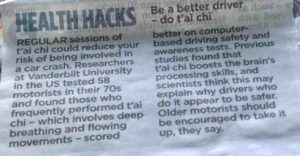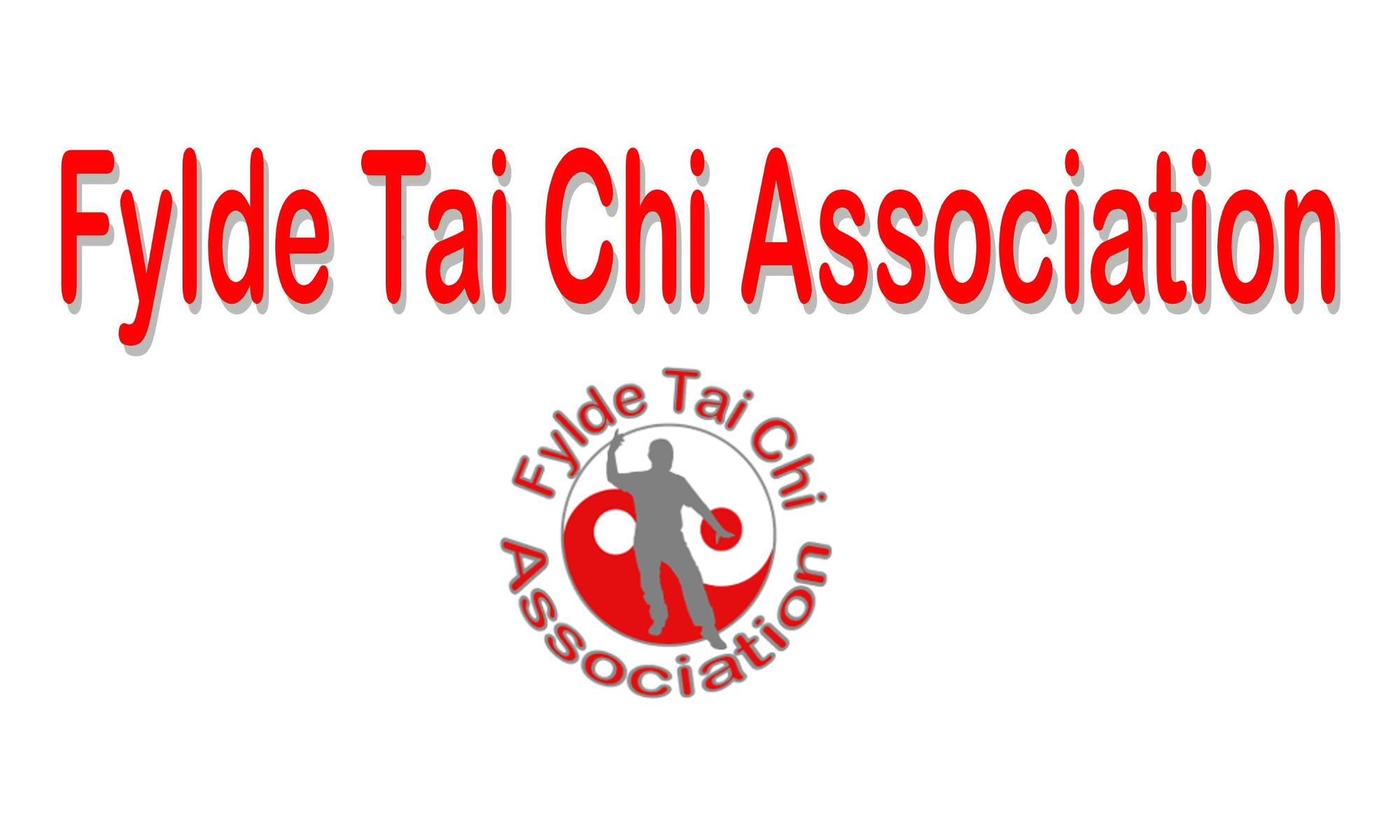Harvard Medical School Recommends Qigong and Tai Chi – https://www.qigonginstitute.org/category/68/harvard-medical-school-endorses-qigong-and-tai-chi
website-articleAn Evidence Based Understanding

An article from The Times newspaper from January 2019.
Tai-Chi-FallsResearch examining psychological and physiological benefits of Chi Gung and Tai Chi is growing rapidly. A review of scientific literature suggests that there is strong evidence of beneficial health effects of Tai Chi and Chi Gung, including bone health, cardiopulmonary fitness, balance, and quality of life. (Janke et al, 2010).
For a more detailed, yet down-to-earth understanding of the theory underlying Tai Chi and Chi Gung, along with a detailed analysis of research, you can find more information in the book “Understanding Chi Kung, 2nd edition” (Farrell, J & P. 2014) ISBN 978-1546835899.
Tai Chi shows promise as a complement to standard medical care for people with chronic heart failure (Yeh et al, 2013) and may be useful when prescribed as an alternative exercise programme for selected patients with cardiovascular disease (Ching Lan et al, 2013; Siu man Ng et al, 2012).
The benefits of Tai Chi expounded by its adherents with regard to respiration, theories of Chi etc. notwithstanding, appear to be supported by current findings and may well prove to have benefits not only in preventative methods but also pulmonary rehabilitation programmes (Jun-Hong et al, 2013).
Although some authors find the evidence for Tai Chi and Chi Gung inconclusive (Ulbricht et al,2010; Taylor Piliae et al 2014; Yan et al, 2013), it is generally felt that it may be a safe adjunct to conventional treatment for a variety of conditions and, when practiced regularly, may improve functional quality of life when practiced under standard moderate conditions; the implication being that it is learned under the guidance of a qualified teacher.
In Conclusion
Although research suggests benefits of Tai Chi as an adjunct to conventional treatment with regard to rehabilitation, as mentioned previously, the real benefit of practicing is found in its ability to help maintain one’s constitution and feeling of well-being and self-efficacy.
Recommended Reading:
“A Study of Taijiquan” by Sun Lu Tang (Translated by Tim Cartmell) [2003] – North Atlantic Books. ISBN: 9781556434624. https://tinyurl.com/y2n7enaq.
“Tai Chi 4 You: Simple, Tai Chi and Chi Gung Exercises for Daily Health Maintenance (Chi Gung for Health)” by P. Farrell [2019]. ISBN: 9781727334821. https://tinyurl.com/y2z2xk8n.
“Understanding Chi Kung” by J & P Farrell. [2017]. ISBN:9781546835899. https://tinyurl.com/y6jgospj.
Ching Lan, Ssu-Yuan Chen, May-Kuen Wong, Jin Shin Lai: Tai Chi Chuan Exercise for Patients with Cardiovascular Disease. Evidence Based Complementary and Alternative Medicine. 2013: 2013: Article ID 983208.
Janke R, Larkey L, Rogers C, Etnier J, Fang-Lin: A Comprehensive Review of Health Benefits of Qigong and Tai Chi, American Journal of Health Promotion. 2010: 24 (6).
Jun-Hong Yan, Yon-Zhong Guo, Hong-Mei Yao, Lei Pan: Effects of Tai Chi in Patients with Chronic Obstructive Pulmonary Disease: Preliminary Evidence. PLoS One. 2013; 8(4): e61806.
Sui man Ng et al: Cong wen wang; Rainbow tin hung ho; Tat Chi Zhei; He J; Chi Woon Tam Wong: Alternative Therapies in Health and Medicine. 2012; 18(3):16-22.
Taylor et al: Effectiveness of Tai Chi as a Community-Based Falls Prevention Intervention: A Randomized Controlled Trial. Journal of the American Geriatrics Society. 2012 May; 60(5): 841–848.
Taylor-Piliae RE, Hoke TM, Hepwoth JT, Lalt LD, Naiafi B, Coull BM, Yan JH, Gu WJ, Sun J, Zhang WX, Li BW, Pan L: Effect of Tai Chi on physical function, fall rates and quality of life among older stroke survivors. Archives of Physical Medicine and Rehabilitation. 2014; May; 95(5):816-24.
Ulbricht C, Basch E, Bent S, Chao C, et al.: Evidence based review of Qigong by the Natural Standard Research Collaboration. Natural Medicine Journal. 2010; May 2 (5).
Wang C, Schmid CH, Hibberd PL et al.: Tai Chi is effective in treating knee osteoarthritis. Arthritis & Rheumatism. 2009; 61(11):1545–1553.
Yan JH, Gu WJ, Sun J, Zhang WX, Li BW, Pan L: Efficacy of Tai Chi on pain, stiffness and function in patients with osteoarthritis: a meta-analysis, Plos one. 2013 Apr 19;8(4): DOI: 10.1371/journal.pone.0061672.
Yeh GY, McCarthy EP, Watne PM, Stevenson LW, Wood MJ, Forman D, Davis RB, Phillips RS: Tai chi exercise in patients with chronic heart failure: a randomized clinical trial. Archives of Internal Medicine. 2011; Apr 25;171(8):750-7.
The Benefits of Tai Chi:
Dr. Mosely did a 15 minute radio show on Radio 4 about the benefits of tai chi. A summary of the show is included in the following article:
https://www.bbc.co.uk/programmes/articles/18gmYMx2ntW6Sdyl3fTH0Gw/the-surprising-health-benefits-of-tai-chi
There is also a link within in it to the actual programme but I’ve added it here (https://www.bbc.co.uk/sounds/play/m001hf9h) for ease.
